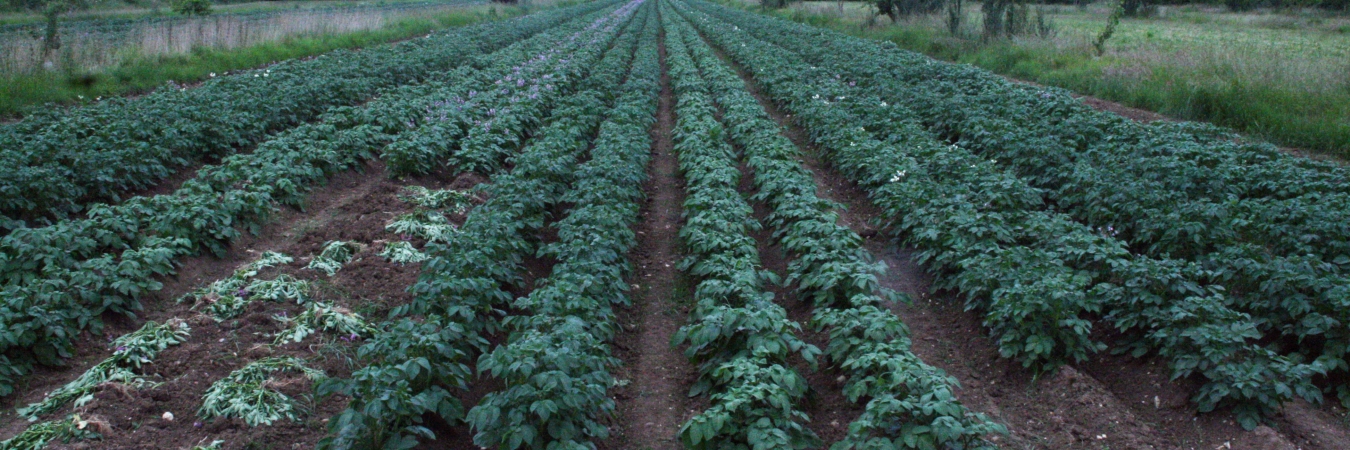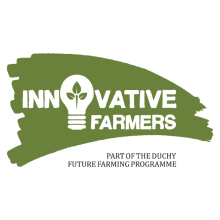Potato blight – is the answer beneath the covers?
Potatoes grown in the UK are at risk from 26 different diseases. It is vital therefore to investigate methods and varieties that reduce the cost and loss of production through disease.
Through the Innovative Farmers network, a group of growers have come together to look at ways of combating potato blight using novel techniques. They are particularly interested in using mesh covers to help control blight. Mesh covers have been found to have slightly reduced potato blight spores in an experiment carried out in New Zealand. Trials at the Biological Husbandry Unit in New Zealand using mesh covers to exclude Tomato Potato Psyllid (TPP) (Bactericera cockerelli) had the unexpected side effect of reducing potato blight spores.
Could this be an option for UK growers and could it be economic? It has the potential to contribute to sustainability of farms, reducing the use of copper or other damaging fungicides and could particularly benefit higher value potato crops (salad and earlies) or where the market specifies particular varieties that have little resistance.
The group have speculated as to why the mesh may be effective – could it be due to a change of light spectrum? Could it be due to slightly different micro-climate conditions under the mesh? Blight is mostly wind borne… Work on other trials looking at plant health through fluorometry tests could provide some indicators to whether potatoes may be more susceptible to blight. One of the triallists is looking into the possibility of testing this on the potato leaves, potentially before and after blight has taken effect.
Most growers have mesh covers they use for brassicas (mainly) for excluding pests, so this has begun initially as a ‘look see’ to see if it needs further investigation. The idea is that growers will compare covered and uncovered plots of the same variety (in the middle of fields) and use simple blight % leaf damage scores to record levels of blight infestation.
We have 5 ongoing trials; 3 in Wales, 1 in Somerset, 1 in Devon. We don’t have much data at this stage due to a lack of blight this year so foliar assessments haven’t shown up much. The historically low levels of blight has been great for growers but not for the trials!
If you are interested in getting involved and trialling mesh covers in your crops or would just like to find out more, check out information on the field lab here.
Dominic Amos is Crops Researcher within the Organic Research Centre. He writes:
“I have a background in on-farm arable field trials, having looked for a career combining chemistry, biology, and love of the outdoors. Travelling after university and volunteering on many farms opened my eyes to a career in food and farming. Concern for the environment and a growing interest in ecological farming methods brought me to the Organic Research Centre as a crops researcher, looking at sustainable crop production, trying to help farmers improve practice in finding ecological and sustainable solutions to production challenges. I work across a number of areas including sustainable crop production, cover cropping, crop rotation diversity, tillage systems and soils.”


